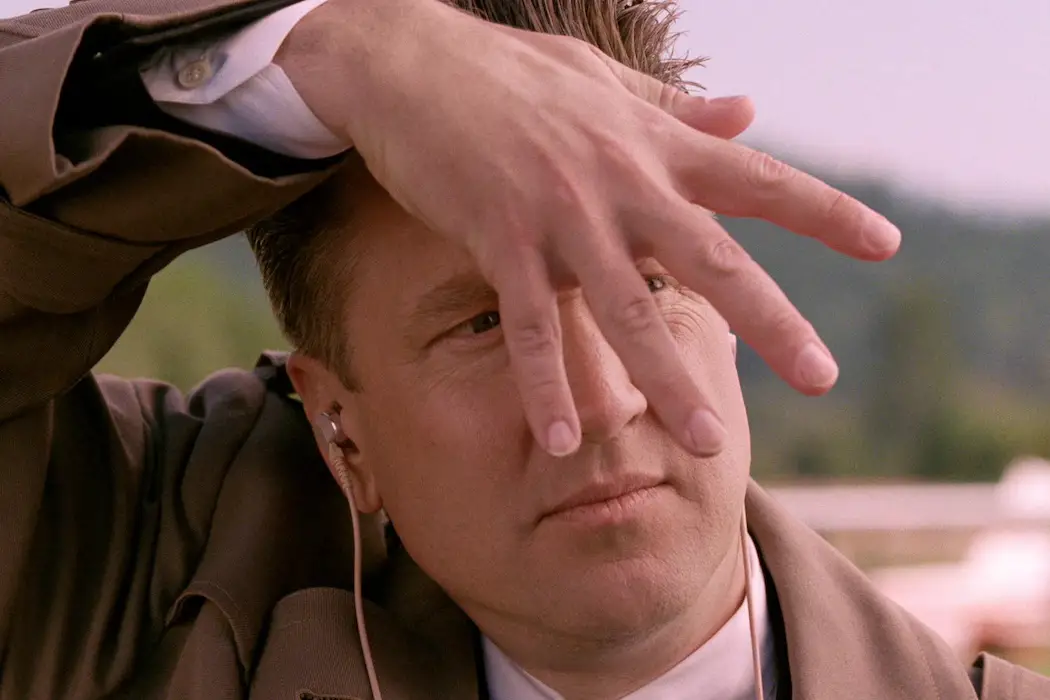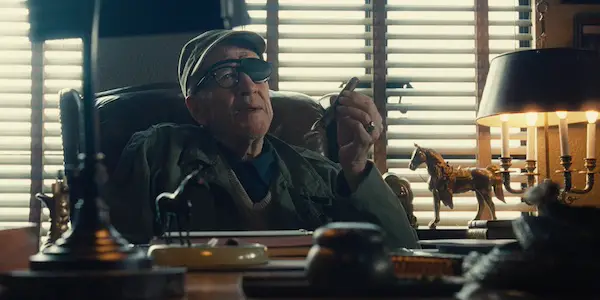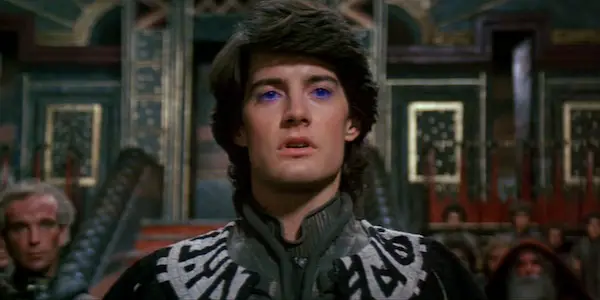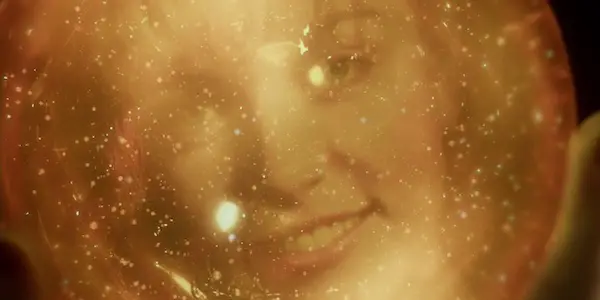Both Beautiful and Strange: Remembering David Lynch

Movie lover & Los Angeles-based writer. BA in Film Criticism…
Part of me did not want to write this. For one thing, despite it having been several weeks now, it’s still unfathomable to reckon with the fact that David Lynch, the singular writer/director/actor/painter/sound designer/musician/A+ Oscar campaigner/surrealist/genius whose body of work spanned over fifty years, has fatefully shuffled off this mortal coil. Believing this would never happen is impractical, of course; death is inevitable and comes for us all. But his was the life that seemed so unique and rarefied that we’d all likely accept it at face value if he became the exemption to the rule. Even the public announcement of his emphysema diagnosis, which arrived just last summer, was countered with a confident “I’ll never retire” attitude that stirred feelings of hope and longevity, hinting at many more years to come. But more importantly, writing about Lynch feels distinctly antithetical to honoring the man himself, as he was always so cautious and purposely evasive with explaining or offering interpretations to his own work. David Lynch liked mysteries, but he did not like giving easy answers, preferring to let his art to do the talking. Everything else was merely superfluous.
And yet, one can’t help but add their voice to the choir of celebration, as his passing saw a world become positively inundated with heaps of praise for a man who created masterpieces, transformed lives, and left behind an unassailable body of influence. More than anything else, Lynch brought people together, with the voluminous outpouring of love having been nothing short of heartening and emotionally resonant. If one were to assemble a Mount Rushmore of legendary filmmakers, a Lynch spot would most certainly be warranted, but even that feels too limiting to an artist of his stature; Lynch richly deserves an entire continent devoted to him and his legacy, for he was simply amazing. There was nobody like him before, and there will never be anyone like him ever again. For many, he’s already attained a mythological status, and in that regard, he will never truly be gone.

What always struck me about David Lynch was how genuine he was. Not just the overwhelming amount of tenderness and empathy reflected in his work – we will get to that, trust me – but who he was as a human being. Whether it be his notably wacky midwestern accent, or a viral video clip of him extolling the virtues of having just consumed two cookies and a Coke, or reports of his lone request on the set of Steven Spielberg’s The Fabelmans for bags of Cheetos (and really, is there no more appropriate final onscreen role than that of John Ford, another cinematic legend?), or his rallying war cry against transphobes – all together now, “Fix your hearts or die!” – it’s all incredibly endearing because one never gets the sense that he’s being the least bit performative in his likes and desires. Lynch spoke from the heart and enjoyed the simplest pleasures of life without any air of pretension, something we should all strive to do.
NOW IT’S DARK
Everything Lynch made, he made his own. Consider, for instance, the most reviled of his own creations, his ill-fated adaptation of Frank Herbert’s Dune, and compare it to Denis Villeneuve’s grueling and antiseptic diptych; namely, their interpretations of the novel’s primary antagonist, the abominable Baron Vladimir Harkonnen. In the Villeneuve films, Stellan Skarsgård portrays the Baron as a bulbous, interstellar gangster, intended to come off as fearsome tyrant, except he’s too slick, too polished, too formal; very much a focus group’s idea of villainy. In Lynch’s version, Kenneth McMillan’s Baron is unbearably rancid, enough to make one break out in hives anytime he appears onscreen. He’s a repugnant, floating abomination, dredged up from the same abyssal black hole of Lynch’s unfiltered id that also violently birthed Frank Booth, Bobby Peru, Killer BOB, Lost Highway’s Mystery Man, The Man Behind Winkie’s, the Inland Empire Phantom, et al. I know which iteration I’m not likely to forget in the next forty years.
Dune would also serve as Lynch’s introduction to Kyle MacLachlan, who’d become one of his greatest and closest collaborators and ultimately star in five of the director’s projects. While appreciation for Dune has only risen in the last four decades, contemporaneous reviews were unkind at best, with the film by all accounts a disaster upon release, plagued by studio interference and a total lack of creative control. But Dune also happened to be MacLachlan’s first film, and any young actor who trudges through hell and back alongside a filmmaker and decides that yes, they are willing to follow wherever they go, speaks more about Lynch’s character than anything else involved with the making of the film. To me, that is a very beautiful thing.

There’s a pervading darkness that runs through the core of Lynch’s work, often manifesting itself beneath idyllic and tranquil surfaces, no better represented visually than with the cockroaches festering underneath an idyllic image of suburban Americana in Blue Velvet. Henry Spencer wrestles with the terrifying realities of sex, parenthood, and responsibility. John Merrick was abused and ostracized by an unforgiving society. Dorothy Vallens was repeatedly assaulted and humiliated by a criminal who kept her family hostage. Laura Palmer was raped and murdered. Diane Selwyn is driven to suicide after a loss of love and floundering film career. Lynch was unflinching, but he never wallowed in misery for the sake of it; he cared deeply about his worlds, his characters, their lives, their dreams, their aspirations. To cheapen them would be to diminish them. Lynch was a director who saw through the bullshit, and was not afraid of shying away from the unpleasantness that permeates life.
IN HEAVEN, EVERYTHING IS FINE
Mainlining Lynch’s films in quick succession after his death really brings out how human and empathetic his work is. For all of his flourishes and idiosyncrasies – Möbius strip narratives, the prevalence of dreams, doppelgängers, backwards-talking dimensions, demons who possessed souls and harvested pain and suffering in the form of creamed corn – it was always the people that populated these worlds that Lynch found himself enamored with. Laura Palmer, the doomed homecoming queen of Twin Peaks, was initially supposed to be portrayed only as a photograph through the entire series’ run. But a miracle came along in the casting of Sheryl Lee, with whom Lynch became so enamored with that he invented an entire part for her in the form of Laura’s cousin, Maddie Ferguson, before promoting her to a starring role in prequel film Fire Walk With Me. That’s another film that critics were completely Wrong About at the time. Fire Walk With Me stands as one of his boldest and most astonishing masterworks, and it’s all buoyed by the raw and tremendous effort Lee commits to the screen. That 1992 audiences witnessed the most nakedly vulnerable and emotionally devastating performance since Maria Falconetti in The Passion of Joan of Arc and still had the gall to dismiss the film entirely is a scream!
Following Inland Empire in 2006, Lynch seemed to have stopped making films entirely. His interests had pivoted to music and paintings, and for the longest time it seemed very likely that his best was behind him, bowing out of the screen world with a digitally shot, terrifying three-hour opus of a woman in trouble. Therefore, nobody could have possibly anticipated what he had in store for us with Twin Peaks: The Return. Released in the unforgettable Summer of 2017, The Return is the crown jewel in Lynch’s oeuvre, a monumental tour de force that blew the doors off of any preconceived notions of what he was capable of. For eighteen weeks, audiences sat rapt in a highly cherished communal experience that will likely never be topped by anything ever again. Film? T.V. Show? How about, Greatest Fucking Artistic Achievement of the 21st Century.

No conversation about The Return is complete without mention of Episode 8, largely considered the show’s zenith. Years before Christopher Nolan won Academy Awards and struck box office gold with Oppenheimer, Lynch recontextualized the New Mexico Trinity test as the birth of The Evil That Men Do, serving up a whirlwind of nightmarish imagery and abstract images that literally danced across the screen. Elsewhere in the episode, a menacing, soot-covered woodsman slaughters the crew of a local radio station while incanting a haunting poem live on air. Shot in a monochromatic color scheme, Episode 8 is radical and oppressive, threatening to crush the viewer’s skull like the aforementioned woodsman. But what happens in the middle of it all? Miles away, in another cosmos, a towering figure known as The Fireman witnesses this act of atrocity, and in a moment of restoring balance to the universe, generates a golden orb bearing the visage of Laura Palmer before sending it to earth. Through the darkness, there is always a glimmer of hope.
CONCLUSION
David Lynch has passed and the world is worse off without him. We will never enjoy another new film, new episode of television, new painting, new song, new musing about life. But the staying power of the body of work he’s left behind remains indisputable, and as we progress towards uncertain times in the wake of his absence, I take growing comfort in the final words uttered by the spirit of John Merrick’s Mother, gently reciting Lord Tennyson as she welcomes her son into the afterlife: “Nothing, oh never / Nothing will die / The stream flows, / The wind blows, / The cloud fleets, / The heart beats. / Nothing will die.” Rest in peace, David Lynch. Someday, we’ll all meet up and raise a glass together in Valhalla.
What’s your favorite David Lynch film?
Does content like this matter to you?
Become a Member and support film journalism. Unlock access to all of Film Inquiry`s great articles. Join a community of like-minded readers who are passionate about cinema - get access to our private members Network, give back to independent filmmakers, and more.
Movie lover & Los Angeles-based writer. BA in Film Criticism & Media Theory from CSU Northridge. Unofficial Bond ally. Rhymes with “tequila.”













